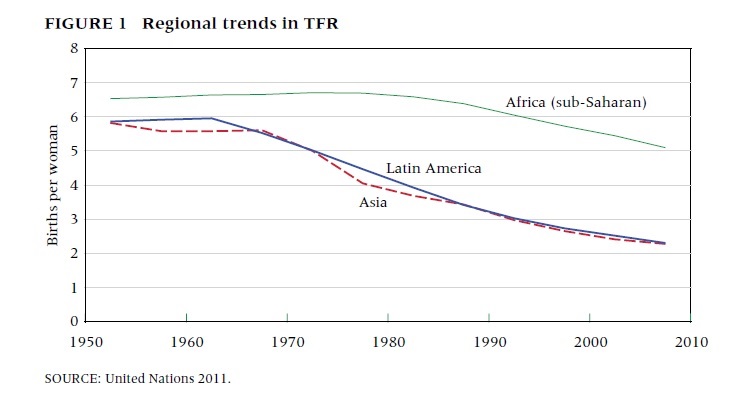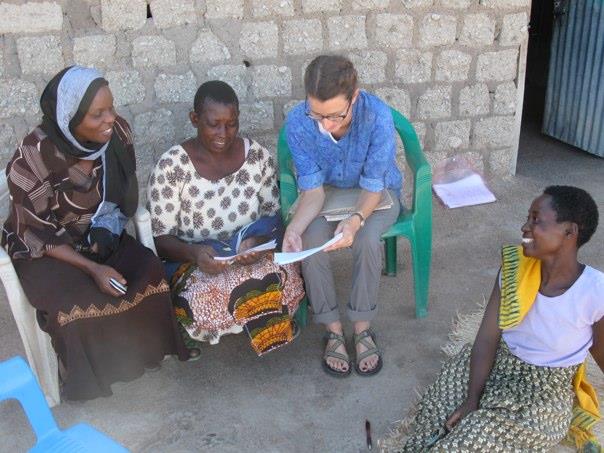Small incentives for immunizations have large positive effects on using health services in India, so why not employ the same strategy for Golden Gophers? Even grad students like suckers.
2 Comments
For this hatrick field season in Tanzania, I opted for some great kindle reading. This Much I know is True by Wally Lamb (captivating), Nelson Mandela’s autobiography (still working on it) and Expat Etiquette: Looking Good in Bad Places by Michael Bear and Liz Good.
Expat Etiquette is incredibly appropriate to me, full of both legitimately good advice and tongue-in-cheek words of wisdom, and absolutely hysterical truths about being a westerner abroad in a poor country. These truths, however, might not be funny to most of the general public. Some of my favorites insights [my reactions in brackets]: This books is a humble guide to all those who not only want to travel far away and sometimes dangerous lands- for the best and worst of reasons- but also want to do so with a modicum of style. Style defines as “appearing to know what you’re doing even when you have no idea what’s happening around you.” [SO true] Interacting with the Home Front 1. Embrace technology, but do so with [incredible] patience. Learn to love SIM cards, and switch between them strategically [as all Africans do], depending on competing long-distance calling rates. Teach your parents how to use Skype [thanks, M and D!]. 2. Develop an adaptable but consistent response to the question “What do you do?” This should be appropriately self-mocking, and should preempt the assumption that you are, in some way or another, trying to “save the world.” Best to knock down pedestals early and often, before you are expected to actually somehow live up to that kind of nonsense. [Besides, even if you arrive with the actual promising good-intentioned naïve objective of saving the world, you will lose any semblance of that goal after precisely 2.5 weeks in country. If you stay for less than that amount of time, you are a tourist and can maintain bliss] 3. Get used to telling friends that you won’t be able to make their wedding/reunion/birthday/baptism-of-their-first-child. [Public apologies to: LPK, MMM, RKF, MC, JMM, MBH, SM] The Only Piece of Travel Advice that Really Matters 1. Sh*t will invariably go wrong. Relax. Do your best to develop a zen-like state of detachment. On the last piece of advice (which is, in fact, the only piece of travel advice that matters): I’ve noticed that the longer I stay here, the easier it is to be detached and relaxed. But this adjustment in expectations has both advantages and disadvantages. For the first month or so, highs are very high and lows are very low. Meeting new people and having funny conversations make me joyous, but when things go wrong (which invariably happens), I am crushed like a kid hearing Christmas is cancelled. However, after zen sets in and my expectations drop, I tend not to fully realize the meaningfulness of incredible human experiences here. Daily challenges dissolve into a way of life, but so does the very uniqueness that makes this place different from home. That is, until I Skype with my mom and she tells me this story is, in fact, a very cool experience and I should write it down. More on that later. Hat tip: Mom and Dad. There is a growing body of criticism of young westerners volunteering abroad in developing countries. Questions a potential volunteer should ask herself: What skills do I have that are actually useful to people in rural Gambia? Who will benefit more from my visit: me or people in rural Gambia? What are the potential detrimental effects (cultural, neo-colonial, organizational) of my visit?
While I don't think most volunteers consider all this, it does seem that the fabricated notion of recent-white-college-grad-saving-African-children (link) is coming under more scrutiny. The desire to travel abroad as a volunteer is driven by good intentions, of course, the desire to do something about poverty, although the something is not clear at all. I fell into this idealistic zeal, as a young volunteer in Senegal eight years ago, and I think I’ve come out of that experience (plus living off-and-on living in Tanzania for the past three years) with a more realistic perspective. The critical self-reflection, of what each volunteer is actually adding to the local economy, culture and the mission of the NGO, should be applied to the developing country organizations themselves. Does taking on volunteers actually fit into the operating mission of this NGO? In theory that the idea of volunteer work has potential to be beneficial; free labor of course lowers operating costs of an organization, leaving more money for programming itself. In practice, however, managing foreign volunteers can distract enormously from the goals of an organization. I've seen this happen with several NGOs here in Tanzania, organizations stretch their mission to house, manage and accommodate young foreigners. Managing the volunteers (who are often young, female and inexperienced) often means finding work for them to do that they are both capable of and that feels fulfilling to these travelers, even if that means that local construction workers actually undo the day work done by the volunteers and redo it every night. The most common type of volunteer abroad is teaching English, and there are plenty of options out there. While English instruction in and of itself is extremely useful, many volunteers who come to teach English have no teaching experience, no experience teaching English as a foreign language, no experience managing large classrooms and no experience with the local language. I quickly learned in Senegal that I am actually a terrible Senegalese English teacher. We should ask ourselves important questions: what skills will volunteers will bring to the NGO? Would we be building capacity more by using local Tanzanian staff instead of foreigners for this work? Including the costs of finding work for the volunteers and managing their activities, would it be cheaper to use local staff? Are the volunteers meant to be learners or teachers? Are they treated as such? How much staff should be allocated to managing the volunteers? In fact, it seems that students, the local community and beneficiaries of these foreign volunteers often view the volunteers as tourists (at best) rather than useful vehicles of skill transfers. In Arusha, young female volunteers are a hot commodity in the dating market. The Tanzanian men who date them are affectionately known as “Rastitutes” for their supposedly appealing dread locks. There’s a nastier word for the young female volunteer who dates a rastitute, but I’ll keep it clean here. As many volunteers are often young and inexperienced, they usually need guidance navigating a foreign country. Using NGO staff to manage their experiences can’t the best use of labor, as opposed to managing scholarships for poor students, implementing entrepreneurship training or distributing bed-nets. Donor cash should be held accountable to the mission of the NGO, if not actual measurable development outcomes. Does teaching a British volunteer about Tanzanian food and music fall under the poverty alleviation mission of this NGO? As a personal note, aside from personal experience as a volunteer in Senegal, witness of mission creep of NGOs to accommodate volunteers in Tanzania, I’m also on the board of directors of a small educational NGO in Minnesota that is considering accepting volunteers in Sub-Saharan Africa. I'm pushing back. Economics takes such a quantitative approach to research; we excel at measuring effects, not at explaining why those effects exist. So, I understand the value of focus group discussions. Allowing people the opportunity to openly explain why, and have responses that include more than a 0 or 1, is a small pittance to that effort.
It’s also useful to have a few anecdotes. There was the woman whose in-laws intervened after she and her husband had decided to use contraceptives. Or a family planning worker who swears people listen to her public health message more when her she carries her official work bag. Even if my quantitative analysis is extremely rigorous, people remember these stories. However, I mostly find focus groups to be an unpredictable, methodologically imprecise and difficult to analyze. Last Tuesday, we conducted a focus group in one of the nearby study villages that was included in the intervention educating local family planning workers. My field assistant liked this village; the village officer was very helpful, and this often made a big difference on how smoothly the household data was collected. I was also impressed as a group of eight men were waiting at the village office for the meeting to start. Family planning discussions with men in Meatu can send off a flurry of debate, as many in these villages are firmly pro-natalist. However, this focus group discussion went extremely smooth. Yes, family planning would be useful for families in this village. Yes, I discuss contraceptive use with my wife. No, we don’t find it difficult to discuss. So, conclusively positive reactions to family planning? Not exactly. If I were to simply analyze the discourse during this discussion, I would miss the entire story. With a little subjective judgment, I saw that the village leader officer had put on a nice show. The sample of this focus group discussion was clearly biased in favor of family planning. These men were mostly well educated and had mostly been screened to be appropriate for our discussion. However, there was one older gentleman in the corner who added two things to the discussion. His initial response to questions about the cost of children was that they are not expensive. And his conclusive statement about family planning was that “it’s complicated.” This guy was clearly not on the family planning train, had more-or-less gotten the message that the conversation should stay positive for the American guest and he was keeping his opinions to himself. Meanwhile, my other beef with qualitative research analysis is the Worldes trend (see below). Apparently, this has become a hip and acceptable as a form of analysis. I could be the old man in the corner and just say the word “think" over and over, and this deep insight would make its way into some analysis in a presentation. Great for a t-shirt, I think, not for a conference. Hat tip: ALD, LN There is a fairly well-established internet literature about the excessive dumping of goods to developing countries mixed with hopeful intentions that falls under the cute acronym SWEDOW. Stuff We Don't Want. Now that I've been back in Tanzania for a couple of days, my bag is lighter after I distributed the stuff I brought from the states to friends who asked for things. Keep in mind that this list of stuff that may be needed is biased by the sample of (well-educated and outdoorsy) folks I mix with here in Tanzania.
Stuff they might want: 1. Smart phones. Especially iPhones. There are 0 authorized Apple stores in Tanzania. A black market certainly exists and second hand smart phones are around, but (probably due to the two-year contract renewals that come with new phones) they are still cheaper in the states. And the connectivity improvement that comes with having a smart phone in a country that mostly lacks landlines, service contracts and cheap computers but does have mobile banking and easy access to phone credit.... is huge. 2. Batteries, of all kinds. Long-lasting and high-quality batteries are also still cheaper in the US. Especially if your dad likes to buy the giant packs of AAAs from Costco. 3. Cords and cables. Also a quality issue. Computer cords and outlets seem to get a lot more element exposure (dust, rain, crummy outlets, playful children) in Tanzania than they do back in the states. I've come bearing two mini USB to USB cords to replace older frayed ones. 4. Tough ziplock bags. Clear plastic bags that actually keep liquid in or keep liquid out. I'm actually still reusing the same ones I brought in 2013. 5. Quality sunglasses. Well, this White-Person-with-Irish-Eyes needs sunglasses. It's not entirely clear if the average Tanzanian requires sun protection, but the dust in the dry season is up the wazoo, so sunglasses that don't break after 4 wears are extremely useful. 6. Good hairbands. The kind that are think enough to hold a big pony tail, don't have that painful metal doodad and don't break after one week. These are priceless. Things to keep in mind as we navigate the SWEDOW flowchart. Any other suggestions? It's true that researchers have bemoaned the seemingly excessive training of people in developing countries. So, why inflict more boring training on more barely-willing participants?
Because it seems that entrepreneurship training does work, for youth and for the most marginalized. My co-authors and I explore the effects of a nine-month training program on youth in Tanzania, focusing on outcomes such as financial literacy and employment skills. Although there are plenty of labor market outcomes that may benefit from a program such as this, we explore the intermediary labor mechanisms that should affect long-term outcomes such as employment and income. We presented our paper a couple of weeks ago at MidDev (Midwest International Economic Development Conference) and got some great comments. Here is our working draft. The notion that entrepreneurship training may be the most effective for a more marginalized community (e.g. school drop-outs, women, youth, lower caste) is supported by McKenzie and Woodruff's (2005) comprehensive review of job training programs in developing countries. Field et al (2010) and Blattman et al (a nice summary here) also both show that business ownership among marginalized women is higher after entrepreneurship training. We find significant positive effects on participants' reported employment skills, savings knowledge and financial literacy through propensity score matching (PSM) analysis. Although PSM isn't the most ideal way to establish causality, we think we've established a valid effect through exploring a number of methodologies (various matching methods, cross-sectional linear regression and individual fixed effects). Take a read and let us know if you think otherwise! I have access to not one, but two, hotlines for potholes in the road. I can report them online to the Hennepin county or, if I find them on campus, I can call and report them to the University of Minnesota.
Bill Easterly had a great bit about potholes as a symbol of development in Elusive Quest for Growth, which I read while working in poorly planned expansive village/city in Senegal, so the example has stuck with me. "But how are the scholarship recipients supposed to study when they live in one dirty room with six siblings and a single mother?" asked a fellow board-member (and veteran school counselor) during our meeting last night for a Tanzanian education NGO.
He had visited the homes of secondary school scholarship recipients and came away feeling frustrated. And now this small, highly efficient education NGO is offering loans and exploring construction opportunities. I made a point for narrower goals, having just read about development bloat, but I'll admit that the slippery slope towards mission creep is, in fact, covered in ice. It is especially tempting to reach beyond your organizations original goals when you start to notice all the other symptoms of poverty that prevent your single intervention from working (or if you exhibit any form of empathy). Bongaarts and Casterline in Population and Development Review explore whether sub-Saharan Africa's fertility is systematically different from the rest of the world, a theory first posited by Caldwell (1992). The authors reject Caldwell's hypothesis that these countries are experiencing a different type of transition in which declines in fertility are occurring at older ages. However, they do confirm some unique characteristics of sub-Saharan Africa's fertility experience. First of all, in many regions, the decrease in Total Fertility Rate (TFR) has stalled, in contrast to the pattern of steep TFR decline in the earliest stages of demographic transitions in Latin American and Asia. And secondly, the small decreases in TFR are mostly driven by larger birth intervals rather than a desire for smaller families.
Except Rwanda. The Rwandan DHS shows an unusual pattern in which unmet need (as defined by women who do not want to get pregnant and are not using contraception) declined by nearly a half between 2005 and 2010, to which the authors credit the invigoration of a national family planning program. Contraceptives use more than doubled between 2005 and 2010. This stands in stark contrast to other sub-Saharan countries (e.g. Ghana, Burkina Faso, Kenya and Nigeria) where use of contraceptives has basically stalled since the mid-1990s. What this paper doesn't answer is how the drivers of unmet need (e.g. lack of knowledge of contraceptive methods and supply; low quality and limited availability of family planning services; cost of methods in travel and time; familial objections and concerns about acceptability) that are propping up that green curve, can be fixed. "Economists know a lot of stuff, the only problem is that a lot of it is wrong. What evidence-based economics or evidence-based policy is about is: party modesty (not thinking you know all the answers to all the questions), curiosity and a willingness to collect data"
That's Richard Thaler in an interview with Stephen Dubner, of Freakonomics, about using evidence to fight poverty. Both Thaler and Dean Karlan discuss the changing landscape of research on effective economic policies. Perhaps this quote sums up my interest in impact evaluations and empirical work: soul-crushing preliminary exams keep me modest, graduate school generally fosters curiosity and I might be overly-willing to ship off to the developing world for the sake of insight into microeconomic decisions and fertility choices. |





 RSS Feed
RSS Feed